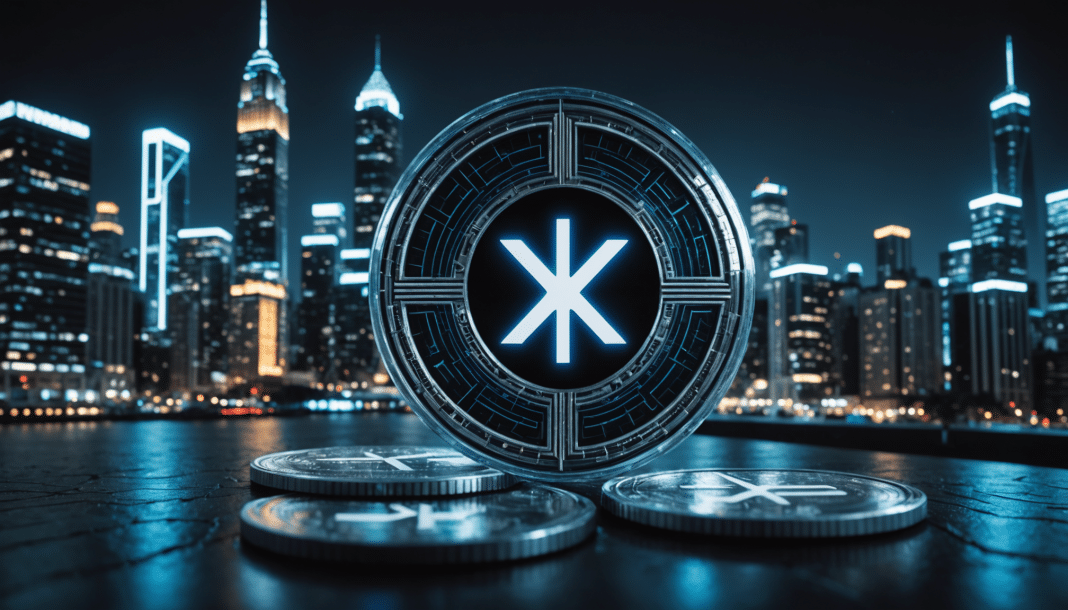The Near Foundation is developing AI-powered ‘delegates’ for its decentralized autonomous organization (DAO) to address low voter participation.
What to Know:
- The Near Foundation is developing AI-powered ‘delegates’ for its decentralized autonomous organization (DAO) to address low voter participation.
- The ‘delegate’ or ‘digital twin’ will learn user preferences and act accordingly in governance decisions, potentially revolutionizing the voting process.
- The rollout of these AI delegates will be gradual, first resembling chatbots, then representing large groups before eventually representing individual DAO members.
In a revolutionary move, the Near Foundation is developing artificial intelligence-powered ‘delegates’ to vote on behalf of its decentralized autonomous organization (DAO) members. This innovative approach is set to address the prevalent issue of low voter participation, a challenge that many protocols struggle with.
Lane Rettig, a researcher at the Near Foundation with a focus on AI and governance, has revealed that the development of this AI-powered governance overhaul is still underway. The Near Foundation supervises the layer-1 Near Protocol, a pivotal player in the ever-evolving crypto market.
The concept involves a user’s delegate, or ‘digital twin,’ learning their preferences and then making informed decisions during the governance process. This could effectively transform the voting process into a ‘math problem’ that can be resolved almost instantly. The delegate will act on behalf of the user, participating in votes and alerting the user to relevant proposals.
Rettig envisions a future where we replace human actors with a digital twin to combat voter apathy and participation issues. However, despite the promising potential of this AI overhaul, average participation rates in DAOs currently stand between 15% and 25%. This low participation can lead to problems such as power centralization, ineffective decision-making, and even governance attacks.
Despite the significant role of AI in this vision, Rettig emphasizes the importance of maintaining a human element in the process. He is a firm believer that humans should always be part of the loop, as there are certain proposals, like those concerning fund allocations or strategic shifts, that are too critical to leave solely to an AI.
AI agents are already prevalent across the crypto sector, building Web3 applications, launching tokens, and interacting with services and protocols autonomously. Some platforms are even exploring the use of AI agents for trading to automate tasks and make real-time decisions.
The AI delegates will be trained on user behavior, much like generative AI chatbots. Through interactions with users, including an interview process, voting history, and messages on social platforms like Telegram and Discord, the AI delegates will learn and adapt.
The number of AI agents in the crypto industry is expected to exceed one million by 2025, according to investment manager VanEck. However, there are concerns about potential security risks and the possibility of AI agents making critical errors if relied on too heavily.
The Near Foundation is taking steps to ensure that the delegates remain aligned with a user’s values through a verifiable model training model, which provides cryptographic proof of its training cycles and inputs.
The rollout of these AI delegates is a steady process. The Near Digital Collective, Near’s main DAO, has already implemented an AI tool called Pulse, which tracks community sentiment, summarizes Discord forums, and highlights important content.
The delegates will start as ‘low hanging fruit,’ with early models resembling chatbots that advise on proposals and provide helpful information and context. The rollout will occur in stages, eventually leading to an individual delegate for each person, and possibly even AI delegate CEOs. This could transform governance into a math problem, with votes being decided almost instantly. This forward-looking, bullish approach signals the potential future of DAO governance.
Related: XRP Price: $12M Max Pain for Bears
Quick Summary
The Near Foundation is developing AI-powered ‘delegates’ for its decentralized autonomous organization (DAO) to address low voter participation. The ‘delegate’ or ‘digital twin’ will learn user preferences and act accordingly in governance decisions, potentially revolutionizing the voting process.
Source
Information sourced from official Ripple publications, institutional research, regulatory documentation and reputable crypto news outlets.
Author
Ripple Van Winkle is a cryptocurrency analyst and founder of XRP Right Now. He has been active in the crypto space for over 8 years and has generated more than 25 million views across YouTube covering XRP daily.
Editorial Note
Opinions are the author's alone and for informational purposes only. This publication does not provide investment advice.


